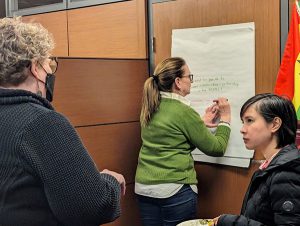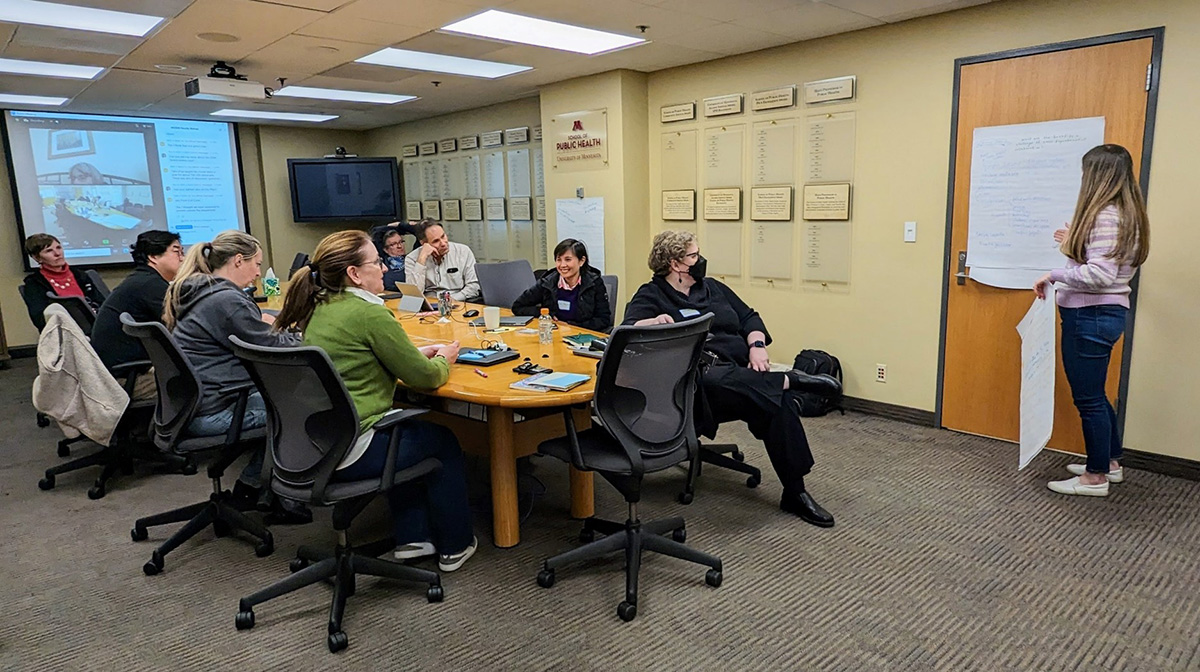
On March 29th, 2024, Midwest Center for Occupational Health and Safety (MCOHS) administrative and academic program leaders convened for a three-hour planning retreat at the Mayo Memorial building on the University of Minnesota Twin Cities campus, with participants both in person and via Zoom. The objective of this retreat was to evaluate the Center’s current position, and prepare for the upcoming update of the strategic plan that will guide the next five years. The retreat utilized the Art of Hosting facilitation techniques to foster deep and productive conversations around strategic planning for the center’s future.
COLLABORATION AND COMMUNICATION
The discussion highlighted the potential of cross-departmental collaboration to extend MCOHS’s influence and foster a more connected environment within the organization. Retreat participants identified potential benefits, such as enhanced creativity, increased funding opportunities, a supportive structure for students, and perceived challenges, including aligning shared values and managing resource constraints.
Some key takeaways and actionable “next steps”:
- Establish concrete center-wide guiding principles
- Develop a comprehensive matrix to help visualize and communicate center offerings
- Create ‘train the trainer’ opportunities
- Provide strategic direction to the advisory council
- Leverage outreach as a center-wide connecting mechanism
- Promote innovation in research and curriculum
- Prioritize community needs
These suggestions are intended to guide MCOHS towards a future where interdisciplinary collaboration enhances its mission without compromising its vision, ensuring its work remains at the forefront of occupational health and safety, thus truly becoming “greater than the sum of its parts.”
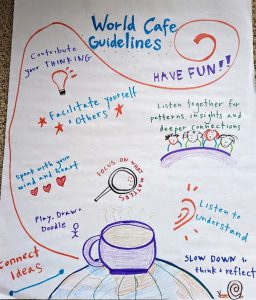 WORLD CAFE
WORLD CAFE
The World Café process is a conversational method that facilitates open discussions, allowing participants to share knowledge and ideas in a relaxed, café-style setting. Creating a welcoming environment with smaller conversational spaces encourages the exploration of diverse perspectives and the emergence of collective intelligence on complex issues.
Retreat participants rotated through different discussion groups to engage in conversation surrounding the following questions related to cross-departmental and cross-program collaboration:
- What are the benefits and challenges of cross-departmental collaboration?
- How does centering cross-departmental collaboration change MCOHS’s mission and vision?
- What can you do to foster cross-program collaboration at MCOHS?
OPEN SPACE TECHNOLOGY
Open Space Technology is a process where meeting participants determine the agenda and structure of the conversation. Retreat participants were prompted with the following questions:
- How do we continue to grow as a center that supports population-level health and safety needs while training the next generation of OHS leaders?
- What are the strengths, weaknesses, opportunities, and threats to our mission?
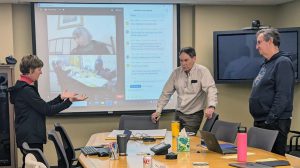
As a result of this process, participants chose two questions to focus on as priorities: what areas can/should MCOHS prioritize, and how can MCOHS transform to be most relevant in a rapidly changing world.
A key takeaway from discussion surrounding these questions was that while the Center can and should utilize strategies to expand our strategic vision and plan, and respond to emerging issues and changing needs of the workplace and students, it is key to remain grounded in the center’s core mission and vision, to align research programs with current issues without reacting to fleeting trends.
Student-led research, outreach, and community engagement were recognized as cornerstones of the Center’s impact, reach, and relevance.
The outreach program can play a crucial role in establishing connections between various programs within the Center, helping to identify community needs, providing faculty with vital information on current issues and needed research, opening doors for student-led research and outreach/service opportunities, and enhancing community engagement and involvement. Integrating outreach efforts more closely with MCOHS’s core functions is essential to ensure that the center’s activities are both informed by and directly beneficial to the communities it serves.
NEXT STEPS
This retreat was a valuable first step in ensuring a cohesive Center that remains focused on our vision and mission, while responding to the occupational health and safety needs of our community and attracting and training the next generation of OHS leaders. Ongoing evaluation and communication are key, and future planning retreats will be scheduled regularly to maintain momentum.
The action items identified during the discussions are designed to leverage the strengths and opportunities identified during the retreat, address the challenges and threats to MCOHS’s mission, and set a strategic direction for its future development.
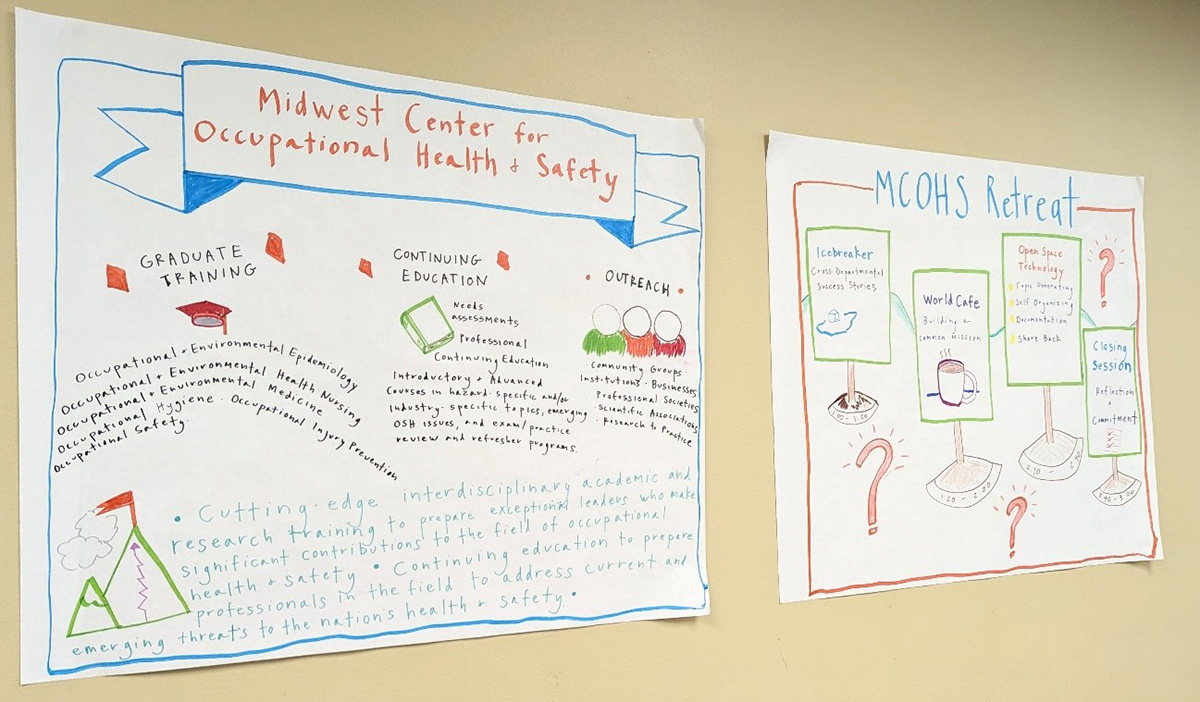
SHARE

